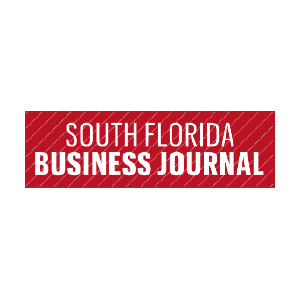Florida Private Equity Deal Flow Down In 2016
By Nina Lincoff
There were 96 private equity deals closed in Florida in the first half of 2016, which is slightly down from the 103 deals closed the same time last year, according to a new report form Miami-based private equity and investment banking firm Cassel Salpeter & Co.
But before investors run with news and declare a decline in private equity investment in the Sunshine State, there are a couple of factors to consider.
At this time last year, data revealed just 75 private equity deals in Florida – the first half of the year projections were updated later as a few more deals were reported.
“It’s a common thing that happens,” said James Cassel, chairman and co-founder of the firm. “Sometimes, a couple months later, adjusted numbers will come out and it’s not that the original data was wrong, it’s just that was the data available at that point in time.”
Cassel & Salpeter release private equity deal flow reports using data from PitchBook, an industry database and analyst. The reports include all private equity investments related to business growth – buyouts, add-ons, growth, recapitalization – made to companies headquartered in Florida, excluding real estate investments.
As with most businesses, deal flow has a lot to do with timing. Second quarter closures are often preceded by months of work, and when a deal closes, it’s largely circumstantial. Big events like tax changes and possible interest rate spikes can mean that companies prefer to close deals in one year as opposed to another, but largely when a deal closes depends on the players.
“Sometimes deals can slow down because of the due diligence,” Cassel said. “But everybody wants to close sooner rather than later. It’s just better that the deal is done.”
In talking to peer private equity firms, Cassel noted that some said January and February were slower months, which in turn affected second quarter closures.
Despite the slight drop in deals that close in the first half of 2016, the Florida market is still relatively stable.
“There are reasons why it should be a pretty healthy market. There is still plenty of private equity available, there is still plenty of debt available at [largely] historically low prices,” Cassel said.
One factor that could be contributing to a slowdown in private equity investments is simply a depleted supply of quality Florida-based deals. But it’s too early to tell whether or not supply has begun to dry up.
“There are businesses available,” Cassel said. However, private equity firms can cycle through businesses and do secondary buyouts, when one firm sells to another and that could buoy the deal flow pipeline in Florida.
Deal flow is also dependent on the buyer. Classic private equity firms buy on a five-year horizon, which limits possible investments. Strategic buyers can invest for life, or until it’s time to divest. Typically, when a family goes into business, it’s for a long time.
“Every private equity firm is a seller, whereas a strategic buyer is not and a family business may or may not be depending on the time,” he added.
Along with deals being down in the first half of the year, private equity exits are also up, meaning a firm has timed out and sold off the company. The Florida private equity investment-exit multiple hit an all-time low of 2.4x in the first half of the year. And while that’s a record low, it’s not a significant enough drop from 2015’s 3.1x multiple to sound an alarm, Cassel said.
The industries where private equity deals closed in Florida were largely consistent with past years. Business to consumer deals were high, as were business to business deals and healthcare. Financial services and IT were slightly less but consistent proportionally with last year, and energy and manufacturing were small to non-existent.
Florida is not an energy-rich or manufacturing state, so that’s not very surprising.
One challenge facing the business community in general is the difficulty of scaling up. It’s easier to start a small business and grow to five or 10 employees, but it gets exponentially harder to scale up to 50 employees or 100 or 500, Cassel said. As the inventory of small business increase, but middle-market firms remains stagnant or decrease slightly, private equity deal flow could be affected.
Moving forward through 2016, there are a couple variables that make it difficult to predict how deal flow will continue – the November elections, potential interest rate hikes, and in Florida, Zika.
“People are talking about one interest rate hike in December after the election, and there’s also talk about one in September, but who knows,” Cassel said. “If we really knew, my gosh what we could do with futures.”
To view original article, click here.



